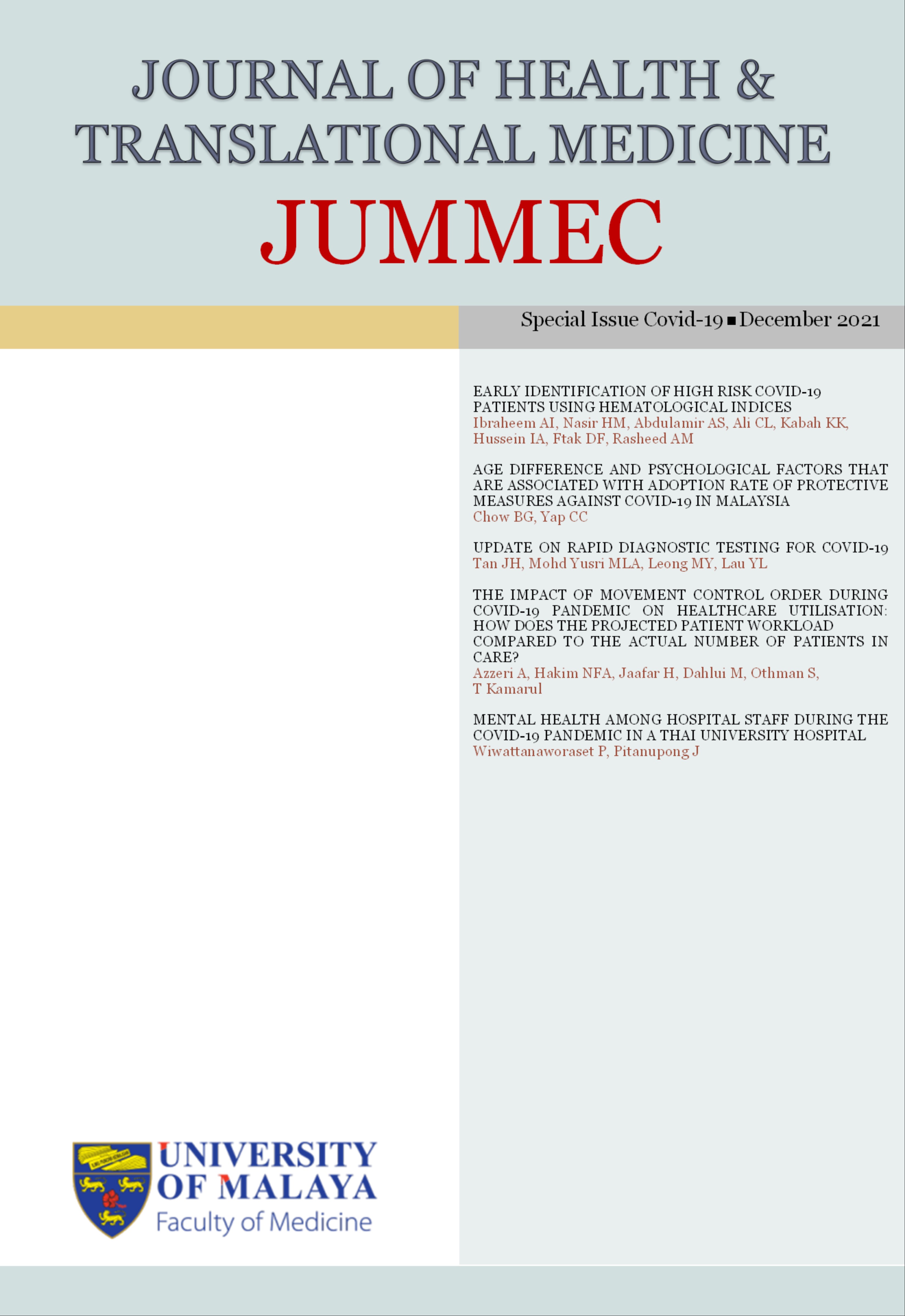MENTAL HEALTH AMONG HOSPITAL STAFF DURING THE COVID-19 PANDEMIC IN A THAI UNIVERSITY HOSPITAL
Received 2020-11-24; Accepted 2021-10-21; Published 2021-11-11
DOI:
https://doi.org/10.22452/jummec.sp2021no1.5Keywords:
COVID-19, cross-sectional study, hospital staff, mental health, university hospitalAbstract
Objective: This study aimed to evaluate the magnitude of mental health outcomes and its associated factors among hospital staff during the coronavirus disease 2019 (COVID-19) pandemic in a Thai university hospital.
Methods: This was a cross-sectional study conducted among hospital staff in a Thai university hospital. Data were collected in May 2020 using online questionnaires, comprising of questions pertaining to demographic, self- perceptions of COVID-19 exposure and prevention, and numeric rating scales for fear of and worry about COVID-19. We also included 3 additional measures, which were Stress Test-5, Generalized Anxiety Disorder-7, and Patient Health Questionnaire-9. Polytomous logistic regression and logistic regression were used to analyse the associated factors.
Results: Of the 1592 participants, 1242 (78.0%) were medical staff and 350 (22.0%) were non-medical staff. Most participants (54.1%) perceived that they had a moderate possibility of exposure to COVID-19. However, 57.5% of them perceived themselves as having a high ability to prevent contracting COVID-19. A total of 46.7% and 73.9% showed moderate fear and worry, respectively. Nonetheless, 86.0% and 77.7% of the participants reported mild stress and anxiety, correspondingly. Furthermore, most participants (86.6%) did not have or had minimal depression. Being female, having physical illnesses, and moderate to high self-perception of COVID-19 exposure were determined as risk factors for severe mental health outcomes. Conversely, higher income was a protective factor of severe mental health outcomes.
Conclusion: During the COVID-19 pandemic, the mental wellbeing of hospital staff should be of concern. Therefore, evaluating mental health outcomes would be one of all evidence to promote mental wellbeing.
Downloads
Downloads
Published
Issue
Section
License
All authors agree that the article, if editorially accepted for publication, shall be licensed under the Creative Commons Attribution License 4.0 to allow others to freely access, copy and use research provided the author is correctly attributed, unless otherwise stated. All articles are available online without charge or other barriers to access. However, anyone wishing to reproduce large quantities of an article (250+) should inform the publisher. Any opinion expressed in the articles are those of the authors and do not reflect that of the University of Malaya, 50603 Kuala Lumpur, Malaysia.


